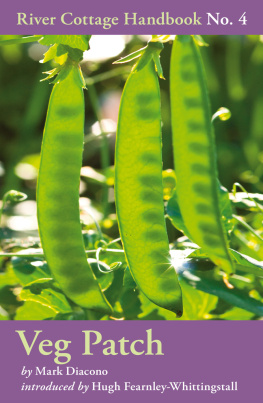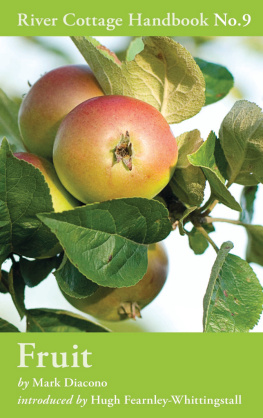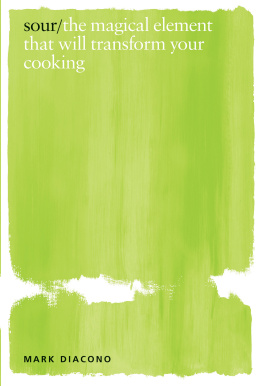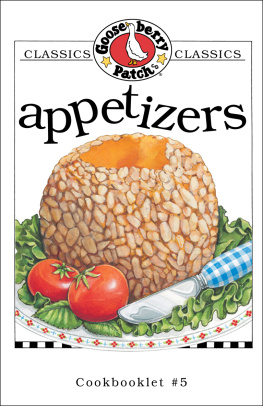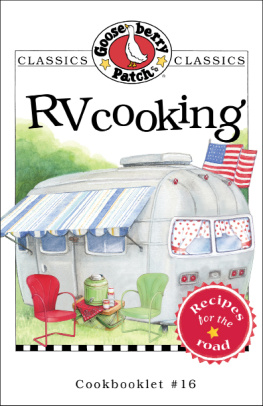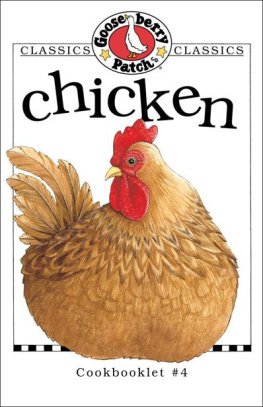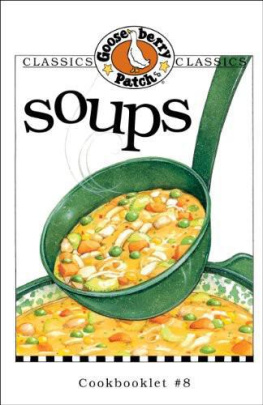
for Candida
Bloomsbury Publishing
An imprint of Bloomsbury Publishing Plc
50 Bedford Square
London
WC1B 3DP
UK
1385 Broadway
New York
NY 10018
USA
www.bloomsbury.com
This electronic edition published in 2018 by Bloomsbury Publishing Plc
BLOOMSBURY and the Diana logo are trademarks of Bloomsbury Publishing Plc
First published in Great Britain 2009
Text 2009 by Mark Diacono
Photography 2009 by Mark Diacono
Additional photography on 2009 by Gavin Kingcome
Mark Diacono has asserted his right under the Copyright, Designs and Patents Act, 1988, to be identified as Author of this work.
All rights reserved
You may not copy, distribute, transmit, reproduce or otherwise make available this publication (or any part of it) in any form, or by any means (including without limitation electronic, digital, optical, mechanical, photocopying, printing, recording or otherwise), without the prior written permission of the publisher. Any person who does any unauthorised act in relation to this publication may be liable to criminal prosecution and civil claims for damages.
For legal purposes the and photography credits constitute an extension of this copyright page.
No responsibility for loss caused to any individual or organization acting on or refraining from action as a result of the material in this publication can be accepted by Bloomsbury or the author.
British Library Cataloguing-in-Publication Data
A catalogue record for this book is available from the British Library.
Library of Congress Cataloguing-in-Publication data has been applied for.
ISBN: 978-0-7475-9534-2 (HB)
ISBN: 978-1-4088-9632-7 (eBook)
Project editor: Janet Illsley
Design: willwebb.co.uk
The publishers would also like to thank Sam Carlisle for his assistance.
While every effort has been made to ensure the accuracy of the information contained in this book, in no circumstances can the publisher or the author accept any legal responsibility or liability for any loss or damage (including damage to property and/or personal injury) arising from any error in or omission from the information contained in this book, or from the failure of the reader to properly and accurately follow any instructions contained in the book. The recipes supplied in the book are for personal use only. No recipe may be used for commercial purposes without the express permission of the author.
www.rivercottage.net
To find out more about our authors and their books please visit www.bloomsbury.com where you will find extracts, author interviews and details of forthcoming events, and to be the first to hear about latest releases and special offers, sign up for our newsletter.
Contents
I wish Id had this book in my hands when I first set out on my River Cottage adventure more than ten years ago. I can say with some certainty that it would have saved me from many mistakes, but its author would no doubt find that unduly negative. And this is the joy of Marks thoroughly upbeat approach to growing your own food. His philosophy is that There are no mistakes, just experiences you probably shouldnt repeat. I can safely say that, if Id had this book ten years ago, I would not only have had fewer experiences that I dont wish to repeat, I would also have had many more experiences that it would be an unqualified pleasure to repeat again and again, season after season.
I have watched Marks progress from enthusiastic amateur to passionate teacher with admiration and great pleasure. Im thrilled that hes now our head gardener at River Cottage. Both on our courses and in the pages of this book, I can think of no better person to share our philosophy with a wider audience. There are few people better placed than Mark to tell you how to deploy home-grown veg to improve the quality of your life, because thats precisely what hes been doing for the best part of the last decade. His great strength lies in choosing and growing vegetables and fruits that are 100 per cent relevant and therefore 100 per cent rewarding. In other words, he grows food that he knows he will use, and will bring him and his family great enjoyment. He recognises of course that these guiding principles will result in a different harvest for everyone. But one of the joys of this book is the way it helps you decide what that harvest should be for you.
One of Marks personal passions is to explore the fringes of what its possible to grow in our unpredictable but undeniably shifting climate. With characteristic verve, he seized the opportunity to look at gardening in a fresh way and started planting pecans, olives and apricots at Otter Farm, his own smallholding in Devon. The inevitably mixed results have included some fantastic successes among them the most delicious apricots I have tasted anywhere in the world!
Mercifully, Marks a better grower than a fisherman. When we first met, we went fishing together out of Weymouth, in pursuit of bass. Sadly, Mark spent most of the time with his head over the side of the boat, generously redistributing his breakfast to the local marine life. He didnt say much that morning. Yet when we got talking back on dry land, I quickly realised this was someone who had something interesting to say about food. Then he began running a few courses for us at River Cottage and I saw what a great teacher he is. Its down to him that we now have Szechuan pepper, allspice, almonds and olives nestling on the slopes around River Cottage. But also that we have sent many hundreds of visitors home with the inspired notion that they will, from that moment on, make home-grown food a vital part of their family life.
In addition to his experimental high-risk crops, Marks lets not take anything for granted approach has led him and us to push at the margins of our seasonality and try out innovative growing methods with some of our best-loved veg crops. Consequently youll find this book is far more than just a digestion of received veg garden wisdom. It is a passionate polemic for growing your own that is full of fresh insights and surprising practical suggestions, such as growing your spuds in stacks of car tyres.
I dont think its overstating it to say that growing your own food will change your life. It may start with a few pots of herbs, a row of radishes, a tub of lettuce, but it rarely ends there. Change is incremental, but inevitable. The pure, sweet pleasure of podding your own peas seconds after picking them will lead to new adventures, new crops. If you grow it, youre more likely to eat it, to share it with friends, and even find yourself making new friends (that happens a lot when people come to River Cottage HQ).
Once you have made the connection between plot and plate, youll expect more, and demand more, from your food. Anaemic, shrink-wrapped cabbage from the supermarket can never taste as good as one you tended from a seed, saved from slugs and caterpillars, nurtured through too little rain or too much. Youll cherish it for the miracle it is and, because of that, youre less likely to waste it.
Food miles, packaging and food waste are three of the biggest challenges that face us as a society, but when you grow your own, you are no longer contributing to the problem. And, without doubt, when youre connected to the land you have more of a stake in its welfare.
Mark and I believe that this adventure is out there for everyone. You just have to choose it. Whether you live in the middle of the city or are nestled in your own green acres, whether you have a terrace with tubs, a regimental allotment or a sprawling vegetable garden, you can have a go. Growing vegetables is a forgiving activity. Try new things, experiment, and as long as you hang on to your optimism and sense of wonder, your veg patch however tidy or raggedy, big or small will be a kingdom of earthy delights. As Mark says, Plants want to grow, all we have to do is let them, rather than make them.

